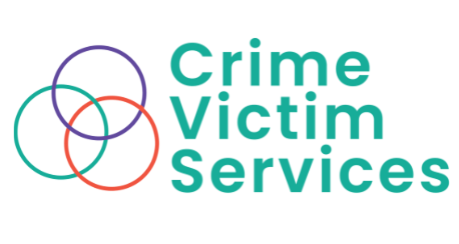Our Initiatives
The LCCL’s Community Facing Intermediary model serves community by addressing some of the most pressing problems people experience. These are just a few initiatives that highlight the LCCL’s work.
Community Crime Victim Services
Community Crime Victim Services (CCVS) is a Colorado program that brings culturally responsive, trauma-informed support directly to crime survivors—especially men, young adults, and people of color who often face barriers accessing help. Created by state law in 2018, CCVS uses a public health approach to reduce repeat victimization and reach people where they are.
The program is supported by the LCCL, which empowers local community and faith-based organizations—especially in underserved and rural communities—by providing grant management, technical assistance, and training. Through CCVS, survivors can connect with care and support that truly fits their needs and strengthens community resilience.
Want to learn more about CCVS? Visit www.ccvsco.org to get started!


Community Development & Crime Prevention
Community Crime Victim Services (CCVS) is a Colorado program that brings culturally responsive, trauma-informed support directly to crime survivors—especially men, young adults, and people of color who often face barriers accessing help. Created by state law in 2018, CCVS uses a public health approach to reduce repeat victimization and reach people where they are.
The program is supported by the LCCL, which empowers local community and faith-based organizations—especially in underserved and rural communities—by providing grant management, technical assistance, and training. Through CCVS, survivors can connect with care and support that truly fits their needs and strengthens community resilience.
Community Violence Interruption & Prevention
Community Violence Interruption & Prevention (CVIP) reduces shootings and strengthens community safety by addressing violence at its source. Grounded in the proven Cure Violence model, CVIP treats violence as a public health crisis—deploying trained Violence Interrupters and Outreach Workers who are credible messengers from the neighborhoods they serve. These frontline leaders mediate conflicts before they turn deadly, prevent retaliation, and connect individuals at highest risk to life-changing supports like job training, housing assistance, and counseling.
Through partnerships with grassroots community and faith-based organizations—and supported by the LCCL’s funding, training, and capacity-building—CVIP works alongside residents, service providers, and local systems to shift norms away from violence and toward peace. Since its launch, CVIP has engaged hundreds of individuals in high-violence areas, contributing to community safety and fostering stronger, more resilient communities.

Reentry
Work and Gain Education & Employment Skills (WAGEES) helps people returning to the community after incarceration rebuild their lives with dignity and confidence. Through a partnership between the Colorado Department of Corrections and local community and faith based organizations—and supported by the LCCL—WAGEES provides free, tailored services like job training, housing assistance, mentoring, and mental health support.
Referrals come via parole or reentry professionals, and participants receive individualized plans and tools to help them succeed. Since its launch in 2014, WAGEES has empowered thousands of Coloradans to connect with meaningful employment, stable housing, and supportive services that prevent recidivism and strengthen communities.
Want to learn more about WAGEES? Visit www.wageesco.org to get started!
Reentry
Helping Justice‑Involved Reenter Employment (HIRE) is a California initiative that helps people returning from incarceration reconnect to the workforce through paid work opportunities, skills training, education, and individualized support. Delivered across Kern, Los Angeles, and Orange counties, HIRE uses a participant‑centered, strengths‑based approach that includes outreach, pre‑ and post‑release, objective assessment, individualized service plans, job placement and transitional jobs, on‑the‑job training, mentoring, and practical supports like transportation and basic needs assistance to promote stability and long‑term success.
As the network hub, LCCL manages sub‑grants, compliance, performance data, and continuous improvement; provides hands‑on technical assistance and training; and ensures quality case management so frontline partners can focus on what matters most: helping Californians returning from incarceration gain employment, advance economically, and strengthen the communities they call home.
Reentry
U.S. Department of Labor Work and Gain Education and Employment Skills (WAGEES) is LCCL’s Growth Opportunities project that connects justice‑involved young adults (18–24) to paid work experience, industry‑aligned training, education, and wraparound supports in five high‑need communities across California and Colorado. As an intermediary, the LCCL and five subgrantees serve 400 participants most impacted by community violence, focusing on stabilization first and then moving into on‑the‑job learning, credential attainment, and employment or further education. Services are voluntary and tailored, using mentoring, cognitive behavioral therapy, restorative practices, and strong referral networks with jails, courts, hospitals, employers, and workforce partners.
The program is supported by the LCCL providing grant management, compliance, and day‑to‑day performance oversight through bimonthly site visits, data‑driven coaching, and a shared data system to track outcomes. LCCL sets quality standards (e.g., a 40:1 active caseload per case manager) and equips partners with policies, training, and monitoring so frontline teams can focus on participant success.
